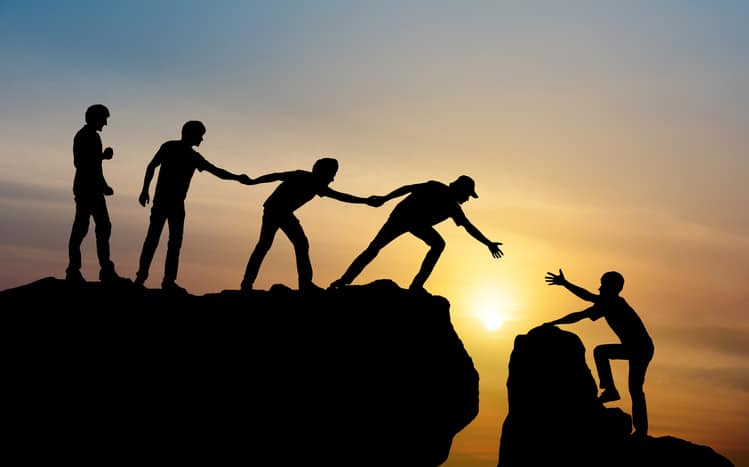-
09 May 2019

There seem to be two opposing forces at the crossroads of humanity and community. In America, for instance, the ethic of rugged individualism can complicate the vision of E Pluribus Unum, “out of many, one.” No one would deny the importance of nurturing healthy egos and an entrepreneurial spirit. Indeed, these are often the seeds of great community growth and benefit. It is only when a focus on the individual becomes an obsession that it affects the cohesion of a group. A society that gives individuals the opportunity to soar and be introspective, while also reflecting on the history of challenges and triumphs faced by the whole, can become more resilient and face the future with optimism.
Jewish tradition has always been about striking a healthy balance between extremes. As Ecclesiastes cautions us, “To everything there is a time and a purpose. […] a time to cry and a time to dance, a time for war and a time for peace.” Nowhere is this better illustrated than in the annual Jewish holy day cycle. Rabbi Yitz Greenberg remarks with awe that, “The holy days are the unbroken master code of Judaism. […] The holy days are the quintessential Jewish religious expression because the main teachings of Judaism are incorporated in their messages. […] By interpreting and reinterpreting the holidays and by applying their lessons to daily life, the Jewish people have been continuously guided along ’the Jewish way.’”
When Rabbi Donniel Hartman visited Washington, DC to speak about our shared values and aspirations, he reminded us that “Israeli and Diaspora Jews are siblings living in very different homes.” While these differences are subtle during most of the year, they are apparent during this season that stretches from Yom HaShoah, Holocaust Memorial Day, through Yom Hazikaron, Israel’s Memorial Day, and culminating in Yom Ha’atzmaut, Israel’s Independence Day. It may not always be clear how these relatively new holidays are relevant to all Jewish communities outside of Israel; however, viewed in the larger context of a 12-month cycle, these modern holidays could contribute to the identity building-blocks of all Jews everywhere.
In his book, A Passion for a People, Avraham Infeld calls this post-Passover period, “The Nine Days of We.” During this period, “we commemorate the Jewish People’s collective transition, the fundamental shift from destruction and powerlessness to independence and sovereignty—viewing Israel as integrally connected to the Jewish People as a People.” In the same way that Israel somberly commemorates the Holocaust, an event that did not happen in the land of Israel, as an event affecting all Jews going forward, Diaspora Jews must see beyond the “birthday of a State,” and appreciate the lasting significance of celebrating the renaissance of the Jewish people.
Infeld also calls this time the “Nine Days of Redemption.” As Rabbi Yael Ridberg explains, “if the ten days in between Rosh Hashana and Yom Kippur represent days of personal introspection, these nine days signify communal commemoration. Taken together, these two periods create the balance of the critical I-We relationship that supports Jewish peoplehood.”
The personal reflection and confessions of missing the mark during the ten days of repentance end with a celebration of gratitude and appreciation during Sukkot and Simchat Torah. The commemoration of destruction and loss on Yom HaShoah and Yom Hazikaron culminate in the celebration of an ongoing redemption of a people and their journey towards an ideal. Rabbi Ridberg suggests a tweak to the standard themes of Diaspora Israel Independence Day parties: “The celebration of Yom Ha’atzmaut can and should be an opportunity, in Israel and the Diaspora, to reflect and celebrate the existential yearnings of the Jewish people: to be like all other countries who yearned to breathe free and independent, and the particularistic nature of Jewish identity that demands Israel be worthy of the memory of the past, and create a vibrant and peaceful future for all its inhabitants.”
After all, the name Yisrael means to wrestle, grapple, struggle, and persevere. What new rituals and activities could concretize these ideas? What stories, legends, and personal journeys need to be recited from one generation to the next? As non-biblical holy days, we have great latitude to be creative yet respectful, and radical yet grounded in tradition. Let all the “I’s” be cognizant of belonging to a “we,” and let the “we” be mindful of the needs of each “I,” for this is the recipe for a resilient people who have tikvah (hope) and an enduring yearning for our collective future.
